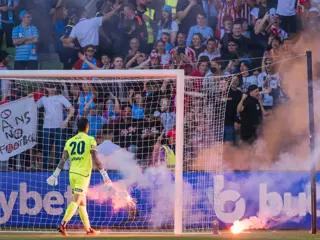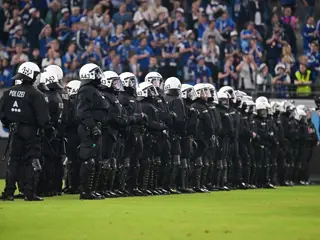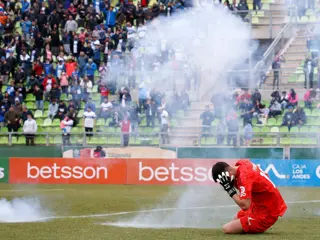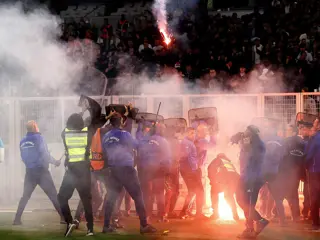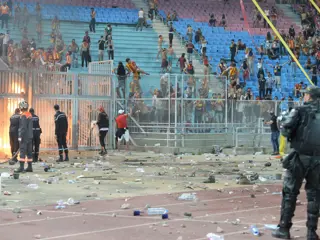News
Workplace safety is growing concern for players in men’s football, new report finds
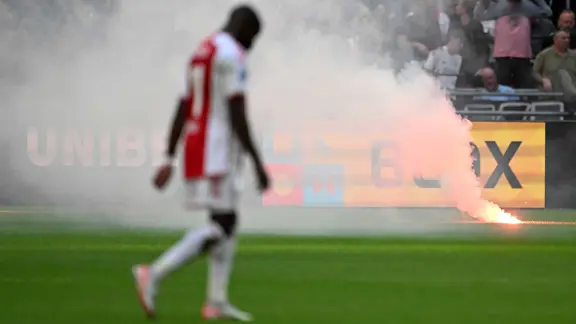
- The report draws on player interviews, a survey of 41 national player unions and media reviews
- The use of flares or missiles are of particular concern, but violent acts also include players being attacked by pitch invaders or victimised from the stands
- Abuse and violence have alarming repercussions: 88 percent of unions said the threat of violence leads to poor performance by players, and 83 percent said that it contributes to mental health issues
A new FIFPRO report highlights the scale and impact of violence and abuse by fans towards professional footballers in the men’s game, while suggesting measures to increase workplace safety and protect player well-being.
FIFPRO Men’s Football Workplace Safety Report: The Impact of Violence Towards Footballers in Their Workplace draws on player interviews, a survey of 41 national player unions and media reviews; the report is underpinned by an academic research paper by Dr Joel Rookwood, Director of the Sport & Exercise Management degree at University College Dublin.
While 85 percent of player unions agree that “in most instances the relationship between fans and players is very positive and should be cherished,” 76 percent said that workplace safety is a growing concern for professional footballers and 66 percent felt that in recent years parts of fan culture have “become increasingly more violent and abusive.”
The survey findings are supported by a Council of Europe committee state monitoring report published in November under the Saint-Denis Convention that says the number of arrests at sports events, and in particular football top tier leagues, “are considerable and can be considered a growing issue”.
The use of flares or missiles are of particular concern, but violent acts also include players being attacked by pitch invaders or victimised from the stands with verbal abuse that can be discriminatory or aimed at family members. Many “hidden instances” of abuse go unreported amid a normalisation of threats and acts of aggression.
Players often silently accept aggression and do not talk about it in case it exacerbates the abuse and prejudices their employment opportunities. A player interviewed by the report’s authors said he felt that “constant access to the real me as a player has lowered the threshold for fans in the stadium to a point where some think they are entitled to do things which they really aren’t.”
Abuse and violence have alarming repercussions: 88 percent of unions said the threat of violence leads to poor performance by players, and 83 percent said that it contributes to mental health issues.
Unions would favour increased use of technology to catch and deter perpetrators: 98 percent said tech devices such as security scanners and facial recognition would make players safer; 88 percent said more should also be done by clubs to ban violent fans, while most agreed more steps should be taken to foster dialogue with fans about the impact of abuse and violence on player well-being.
Alexander Bielefeld, FIFPRO Director of Global Policy & Strategic Relations (Men’s Football), said: “We cannot continue to allow a culture in which footballers are the victims of unchecked and normalised aggression in their working environment: on the pitch, during team travel, at training grounds, official events, and in their private lives.
"Given the mounting levels of violence, it is important football stakeholders, social partners and public institutions increase cooperation to identify measures that ensure the safety of players, staff and spectators. Clubs, leagues, and federations have a responsibility to ensure that players, as employees, have a safe working environment to perform at their peak.”
This report has been developed by FIFPRO Player IQ, a player-focused knowledge centre that aims to help shape decision-making in the football industry to protect and improve the careers and working lives of professional footballers.

